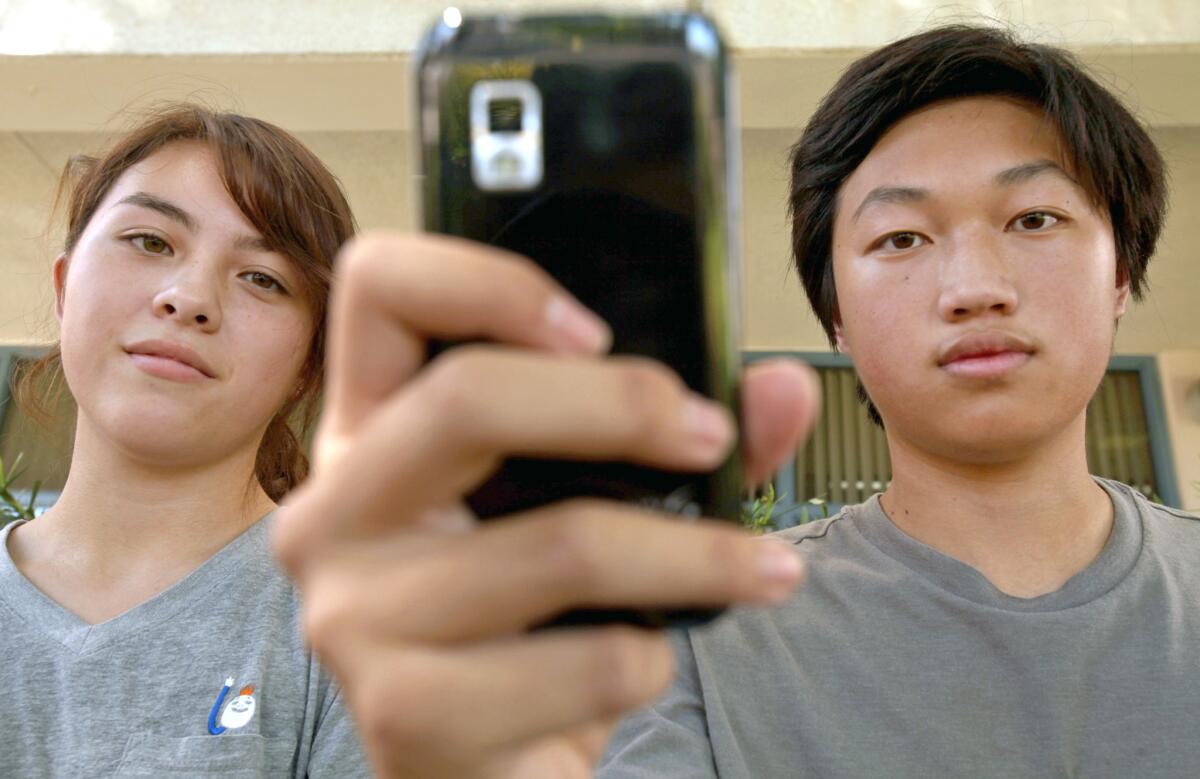Social-media bill dealing with student activity signed into law

- Share via
Students’ public posts on social media collected by school officials must be discarded within a year after a student leaves the district and parents must be notified that school officials are analyzing social-media posts under a new law signed by Gov. Jerry Brown Monday.
The new legislation stems from AB 1442, which Assemblyman Mike Gatto (D-Silver Lake) introduced in January as a result of Glendale Unified officials hiring Geo Listening to monitor students’ posts on social media without telling students or parents that their children’s public posts on sites such as Twitter, Facebook and Instagram were being tracked.
“I’m very pleased that the governor saw the need for this legislation,” Gatto said. “I believe that as the world changes and this type of monitoring becomes more commonplace, legislation like this is critical to protecting the privacy of our children.”
In January 2013, Glendale Unified hired Geo Listening under a pilot program to track students’ posts on social networking sites at three of its high schools.
The school board then voted in August 2013, without any public discussion, to expand the program to track about 13,000 students’ posts across its four middle schools and four high schools. School officials said it would enable them to intervene if students were at risk of hurting themselves, committing suicide, hurting others, using drugs or engaging in violent activity.
Glendale Unified Supt. Dick Sheehan said the district hired Geo Listening in response to the suicide of Drew Ferraro, a 15-year old boy who jumped to his death from a third-story building at Crescenta Valley High School in 2012. His family later sued the school district alleging bullying played a major factor in his death. The case is ongoing.
During the 2013-14 school year, Geo Listening reported more than 1,400 incidents in which Glendale students discussed bullying, drug or alcohol use, suicide or cutting, among other negative topics.
In all, 20 reports referred to despair or suicide and another four mentioned self-harm or cutting. More than 150 reports were tied to bullying and nearly 350 were related to substance abuse. About 380 cases involved students being profane or vulgar. Many amounted to students’ “adolescent humor,” according to a district report.
“There are many instances where we’ve shared information with parents, and they’ve been stunned by what they don’t know,” said Kelly King, assistant superintendent of Glendale Unified, last month.
In August, the Glendale Unified school board voted again to pay $40,500 for Geo Listening’s services for the current school year with board member Christine Walters saying, “This is not an invasion of privacy. This is just taking public information and using it for our students’ well-being.”
The school district also vowed this year to alert parents that students’ public posts were being monitored, a provision under the new law.
“As a parent myself, you always want to know what is going on with your children and what other people are doing when it comes to monitoring,” Gatto said. “Hopefully, this will spark a lot of different things. It will spark meaningful conversations between parents and high school children on what is appropriate to put on social media and what is not.”
He said it could also drive parents to ask school board members questions about “whether this is a good use of resources to engage in this type of monitoring.”
For Sheehan, the new law won’t have much impact on the district, he said, because officials do not retain information they are alerted to through Geo Listening.
“We don’t see it having any effect on the way we operate,” he said.
Burbank Unified Supt. Jan Britz praised the new law, appreciating that school districts are now required to rid any information on students’ posts within a year of a student turning 18 or leaving a school district.
“As kids grow up, they make mistakes,” Britz said. “Hopefully, our job is to help them learn from those mistakes.”
While Burbank Unified officials have intervened when they have been alerted to students’ comments on social media that cause concern, the district does not routinely monitor posts.
“I think Assemblyman Mike Gatto put a lot of thought into the bill,” Britz said. “I think he did a good job representing our views on it.”